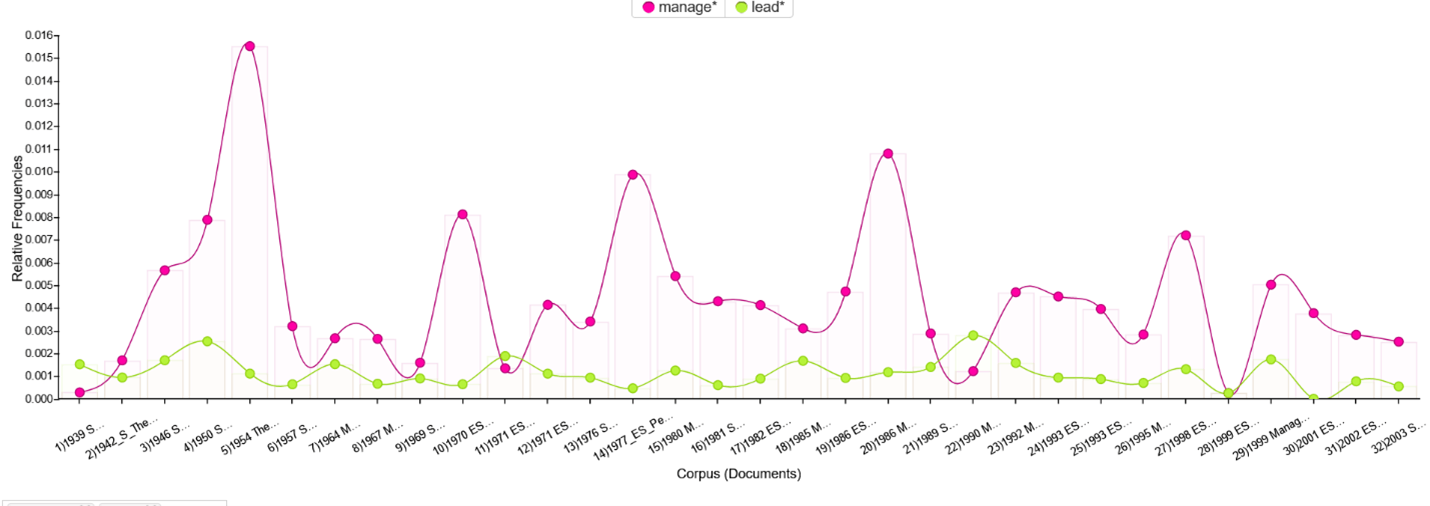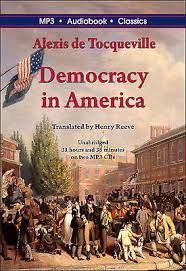By Karen Linkletter, Ph.D.
•
August 20, 2025
Previously, I shared de Tocqueville’s concept of equality of condition and how it is manifesting in today’s perception that democracy has failed to deliver on its promise of economic and social equality for all. Promises of economic equality are impossible to fulfill; but democratic societies can and should offer all of their members dignity and a sense of purpose. In this final installment, I’ll share de Tocqueville’s prescriptions for shoring up the institutions of a democratic society – as well as some of his warnings about challenges that democracies face. Tendency Towards Strong Authority According to de Tocqueville, the love of equality found in democracies leads to a tendency towards favoring strong, centralized governmental power. As conditions become more equal, “individuals seem of less and society of greater importance” (Tocqueville, 1835, p. 290). This leads to what he refers to as “uniformity of legislation”: the belief that laws and rules should be applied uniformly to everyone across society. Nuance and complexity are lost, and individual difference is subsumed to a concept akin to Rousseau’s General Will (which Drucker treated with the utmost disdain). The United States that de Tocqueville visited was still relatively rural and homogenous in 1830, but there certainly were tensions brewing with respect to slavery, the role of women in society, and the balance between manufacturing and agriculture in the economy. Today, the United States at times stresses the importance of strong federal power, usually to assert law and order or negotiate with other sovereign nations, but at other times lauds the role of individuals having a voice in state and local matters, such as educational curriculum and budgetary control. This tension between the desire for central authority and states’ rights has a long history and continues to impact legislative and other matters. Role of the Judiciary De Tocqueville holds up the Constitution as an exemplary system of checks and balances to counter this tendency towards the power of the “despotic majority.” James Madison famously warned of “tyranny of the majority” in his Federalist Paper Number 10. De Tocqueville favored the system of federalism, which limited the powers of the federal government to those functions that were best suited to a central power and delegated the rest to the states. He stated that this allowed “the Union to combine the power of a great republic with the security of a small one” (Tocqueville, 1835, p. 299). De Tocqueville was particularly impressed with the power given to the judiciary in the United States. He wrote extensively on our system of trial by jury, arguing that serving on a jury was a form of legal education for everyday people, and thus an important part of understanding the workings of the legal process enshrined in the Constitution. The judiciary, he said, “check and direct the impulses of the majority without stopping its activity” (Tocqueville, 1835, p. 299). The role of the courts in the United States today is under challenge. Recent Supreme Court decisions have ceded the power of that body over the executive branch (see Trump v. CASA and Trump v. United States). However, federal courts continue to function to “check and direct” questionable actions through injunctions. Globally, an independent judiciary is seen as crucial to counter rising authoritarianism (Satterthwaite, 2022). The Art of Association Alexis de Tocqueville was fascinated by Americans’ affinity for local action. As a member of the French aristocracy, this was completely foreign to him. He observed Americans participating in local government, clubs, religious congregations, and reform organizations. He used New England as a model, remarking that the system instituted under Puritan rule (which involved self-government and autonomy) fostered a strong sense of local activism: “The New Englander is attached to his township not so much because he was born in it, but because it is a free and strong community, of which he is a member, and which deserves the care spent in managing it” (Tocqueville, 1835, p. 66). Because local action bonded people to one another (in Drucker’s words, provided status and function), they feel a sense of purpose. This “art of association” that Americans demonstrated to de Tocqueville countered the tendency towards negative individualism and the despotism of the majority that he feared. Many authors have documented the increasing atomization of society and subsequent loss of social mixing that was the hallmark of American public life (see Galbraith, The Affluent Society, Putnam, Bowling Alone, and Bishop, The Big Sort). The rise of social media has only increased this tendency. To counter this reality, radio and television commentator Michael Smerconish created “The Mingle Project”, a series of events bringing diverse groups of people together to discuss topics of interest. Free Press De Tocqueville is well-known for advocating for a free press. It is, in fact, one of his core tenants of a functioning democracy: “to suppose that they [newspapers] only serve to protect freedom would be to diminish their importance: they maintain civilization” (Tocqueville, 1835, p. 111). While he acknowledges the existence of “junk news”, he argues that there is much more good information than bad. De Tocqueville was particularly impressed with the wide range and number of newspapers available, particular smaller news outlets. As the primary information source of that era, newspapers allowed people to not only stay current on politics, but also to know of events they could attend. Perhaps most importantly, a free and diverse press sheds light on government, creating yet another possible guardrail against abuses of power. There is substantial research on the impact of declining local news, showing that it contributes to political polarization, lack of voter engagement, and reduced accountability in the public sector (see The state of local news and why it matters, American Journalism Project, https://www.theajp.org/news-insights/the-state-of-local-news-and-why-it-matters/). Declining circulation and advertising revenues have resulted in the closure of thousands of local media outlets despite the fact that most Americans have positive impressions of local journalists. Furthermore, fewer Americans are paying attention to local news, and the majority prefer to get their news from online forums such as Facebook or Nextdoor (Shearer et al., 2024). De Tocqueville’s Warnings It is clear that de Tocqueville saw rule of law, vibrant local organizations, and a healthy fourth estate as counterbalances to the tendency towards despotic rule by the majority and centralized power in democracies. He furthermore warned against two specific threats to democracy: capitalism’s ability to create a permanent social underclass, and citizen apathy. A Manufacturing Aristocracy In 1830, America’s economy was beginning its transition from one based on agriculture to one driven by industry. That transition would accelerate after the Civil War, but de Tocqueville remarked on the transformation that he saw during his visit. He was most concerned, however, with industrialization’s impact on society. As manufacturing became more specialized and routinized, the work itself became more mundane and unfulfilling; de Tocqueville describes to a tee what Karl Marx and Friedrich Engels would a decade or so later describe as “alienation of labor”: “as the workman improves, the man is degraded” (Tocqueville, 1835, p. 158). Spending twenty years “making heads for pins” leaves the worker no room to exercise any curiosity or intelligence; instead, the worker is assigned “a certain place in society, beyond which he cannot go” (Tocqueville, 1835, p. 159). At the same time, manufacturing “raises the class of masters” to the point where worker and owner have nothing in common. Each fill a position that is fixed, and they are dependent upon each other. This, de Tocqueville argues, is an aristocracy. The creation of a “permanent inequality of conditions”, he claims, would spell the demise of democracy. History has shown his analysis to be sound. The Work of Democracy De Tocqueville described the slow delegation of decision making over everyday events from the individual to the state. People, he said, had two conflicting desires: “the want to be led, and they wish to remain free.” In order to fulfill both of these desires, they elect governments democratically but then surrender to “administrative despotism” in the form of rules and regulations that slowly erode individual decision making over matters (Tocqueville, 1835, p. 319). This is another byproduct of equality of conditions; if everyone is the same, then rules can apply to every aspect of life without considering individual circumstances. But of course, this is not the case, and so expanding limitations on judgment, de Tocqueville argues, reduces the ability of democratic citizens to think for themselves. In essence, he is warning that democratic governance requires engagement, involvement, and faith in people’s ability to govern themselves. Otherwise, democracies will simply become administrative tyrannies where the tyrants are duly elected. Conclusion Benjamin Franklin famously responded, when asked what kind of government the Constitutional Convention had created, “A Republic, if you can keep it.” His comment captures the fragility of this form of government, and the responsibilities it construes on its citizens. Alexis de Tocqueville’s observations and warnings send a similar message to us. We have a responsibility to ensure that fair-minded journalism, judicial equity and oversight, and meaningful social and civic engagement are part and parcel of our democratic system of governance. If we fail to pay attention to the warnings from those who were closest to the early stages of democracy’s development, we stand a fair chance to lose what we have been bequeathed. Sources Bishop, B. (2008). The big sort: Why the clustering of like-minded America is tearing us apart. New York: Houghton Mifflin Harcourt. Galbraith, J.K. (1958). The affluent society. New York: Houghton Mifflin Company. Putnam, R. (2000). Bowling alone: The collapse and revival of American community. New York: Simon and Schuster. Satterthwaite, M. (2022). The role of an independent judiciary in protecting rule of law. Asia Pacific Justice Forum, World Justice Project, Dec. 8-9, https://worldjusticeproject.org/news/role-independent-judiciary-protecting-rule-law. Shearer, E. et al. (2024). Americans’ changing relationship with local news. Pew Research Center, https://www.pewresearch.org/journalism/2024/05/07/americans-changing-relationship-with-local-news/. Tocqueville, A.D. and Reeve, H. (1835). Democracy in America. London: Saunders and Otley, to 1840.






